How to Report Gas Price Gouging in New Jersey
When there is a disaster or state of emergency, demand for certain products and services rises. If a business takes advantage of the demand to raise prices, it is known as price gouging. Most states have laws to protect their citizens, including the law.
If you notice a gas station is gouging gas prices, you might not know how to take action. The process to report and send demand letters to a retailer for price gouging is complicated and confusing. Luckily DoNotPay can help.
What Goods and Services Fall Under Price Gouging?
Although gas is a typical product to gouge, there are a lot of goods and services that commonly fall victim to price gouging. Different states have different laws regarding what goods and services fall under gouging laws.
New Jersey covers all goods and services under their gouging laws, but here is a table of some commonly gouged items and services.
| Goods |
|
| Services |
|
How to Recognize Gas Price Gouging Scams
Price gouging occurs across a myriad of sectors. Tree trimmers might gouge prices after a bad storm. Third-party sellers on Amazon or eBay could gouge prices on items like toilet paper and hand sanitizer. Sometimes retailers will gouge pharmaceuticals that people need to maintain their health.
Of course, businesses can raise their prices due to their additional costs, making spotting price gouging tricky. It might be challenging to decipher if something is considered price gouging, but there are some criteria you can use to determine if it is gouging.
- New Jersey classifies gouging as any price that exceeds 10 percent of the price the product or service was sold during the ordinary course of business before the State of Emergency.
- Price gouging is in effect in New Jersey during the State of Emergency and 30 days after its termination.
- Compare prices between gas stations. If one gas station is considerably higher than others, it is a sign of price gouging.
How to Handle New Jersey Gas Price Gouging
If you encounter , you might not know how to handle the situation. You can take steps to report the station on your own, but they are long and confusing.
- Record the gas station's name and location.
- Document the date, time, and price
- If possible, take pictures for evidence.
- Contact the Division of Consumer Affairs at (973) 504-6240.
- File a complaint online at https://www.njconsumeraffairs.gov/Pages/Consumer-Complaints.aspx.
- Consult with an attorney if you wish to pursue action to gain reimbursement and restitution. In New Jersey, a]ny person who suffers any ascertainable loss of money or property can be awarded three times the damages sustained. The court shall also award reasonable attorneys' fees, filing fees, and reasonable costs of the lawsuit.
How to Protect Against Price Gouging Using DoNotPay:
Although you can take action on price gouging independently, DoNotPay will do the work for you. DoNotPay has you covered in 5 easy steps:
- Open the Price Gouging Protection product on DoNotPay.
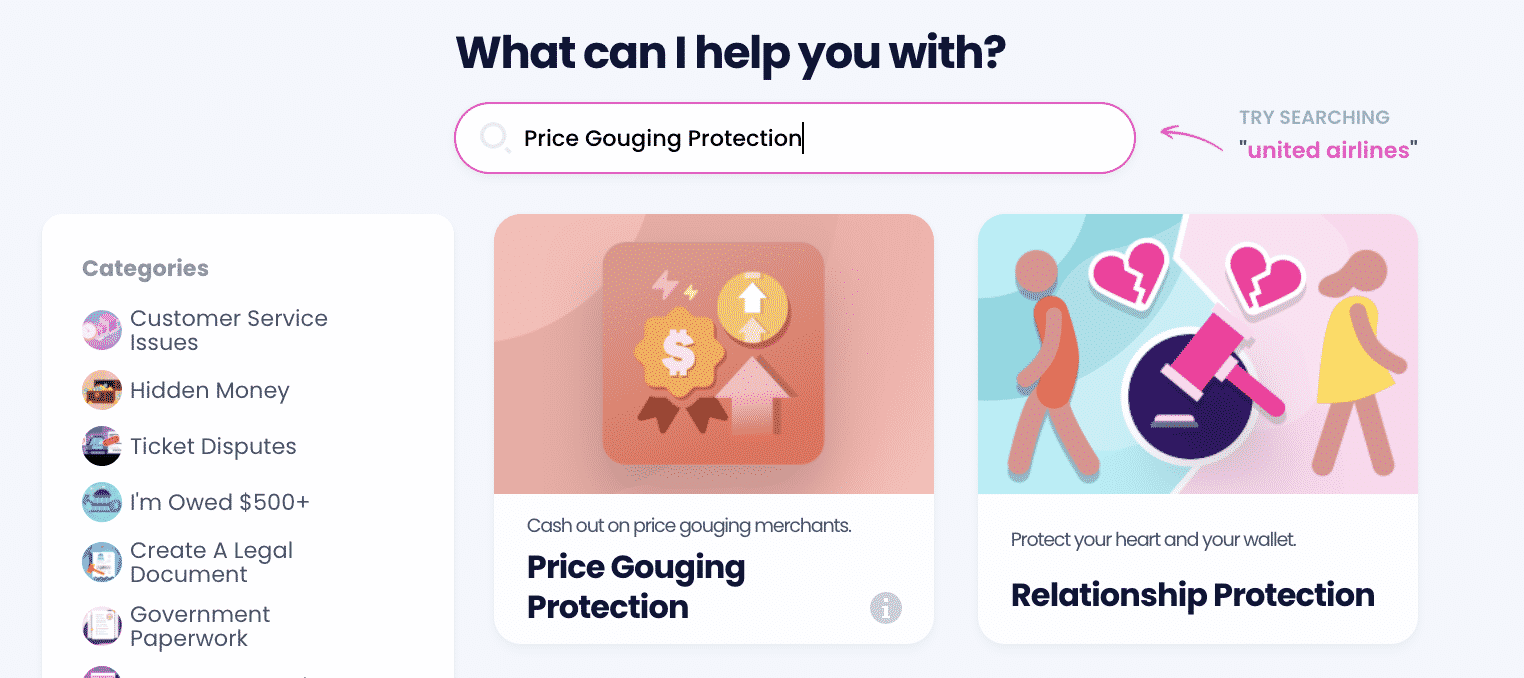
- Generate a fake credit card to use with the merchant.
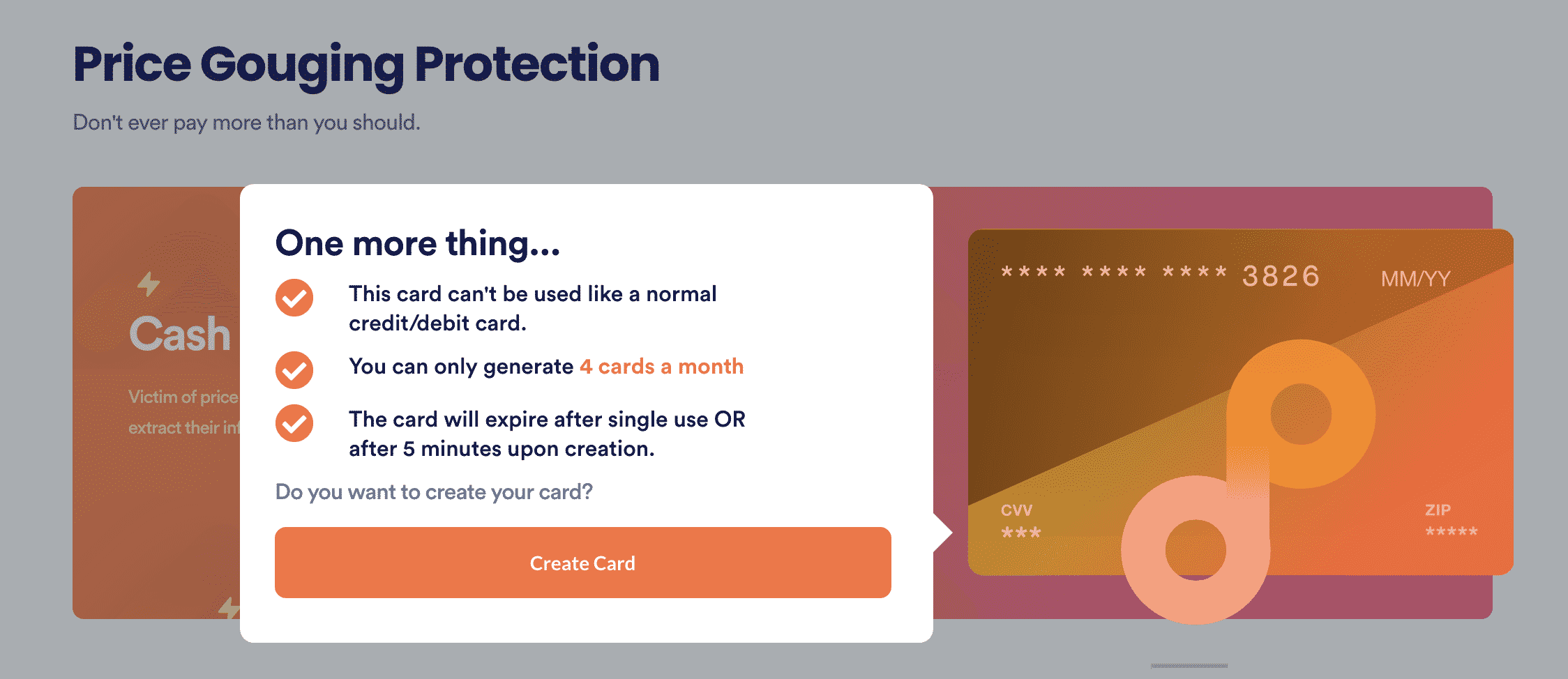
- Complete the transaction with the fake credit card.
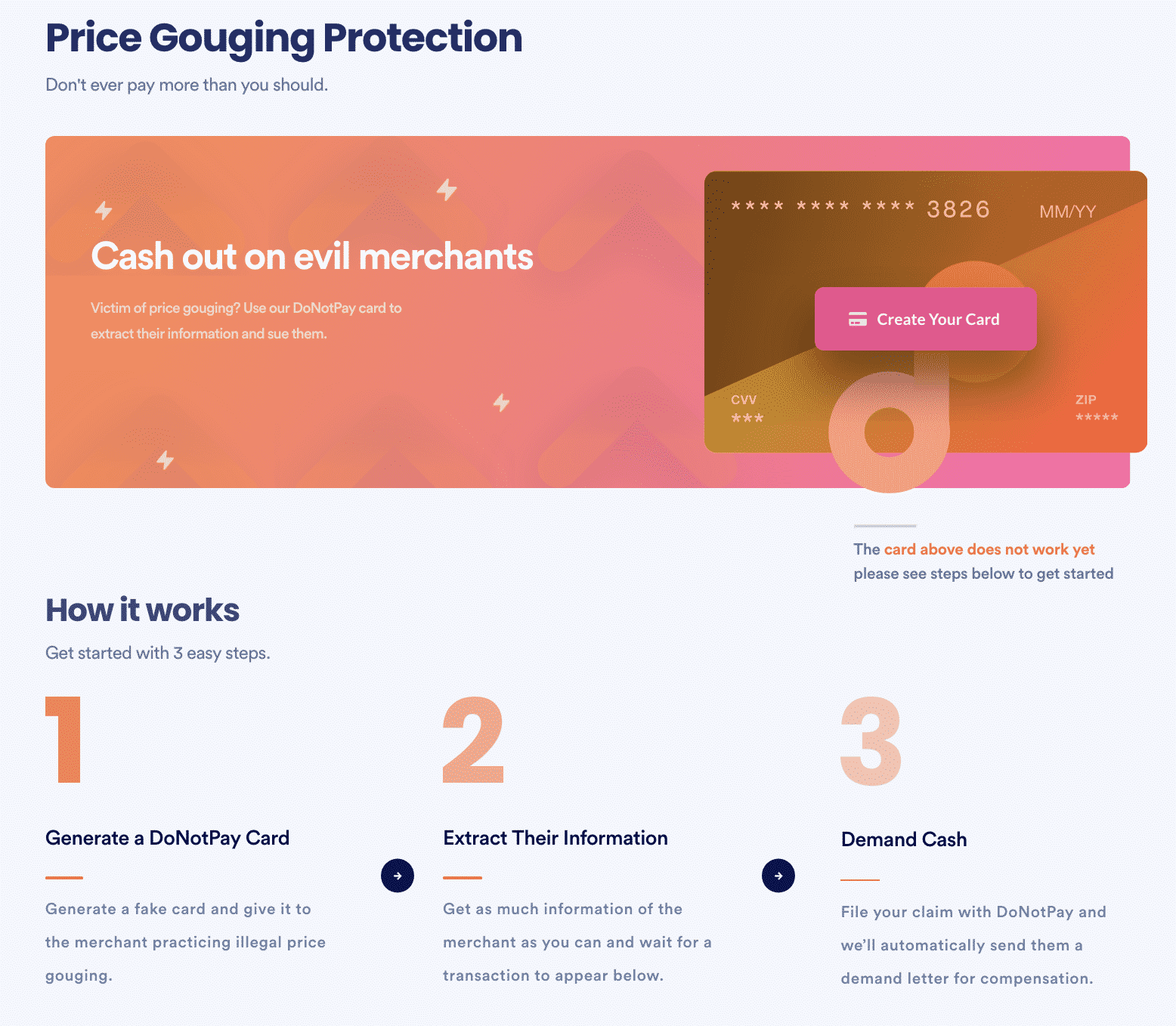
- Save a photo of the transaction as evidence and start the demand letter process.
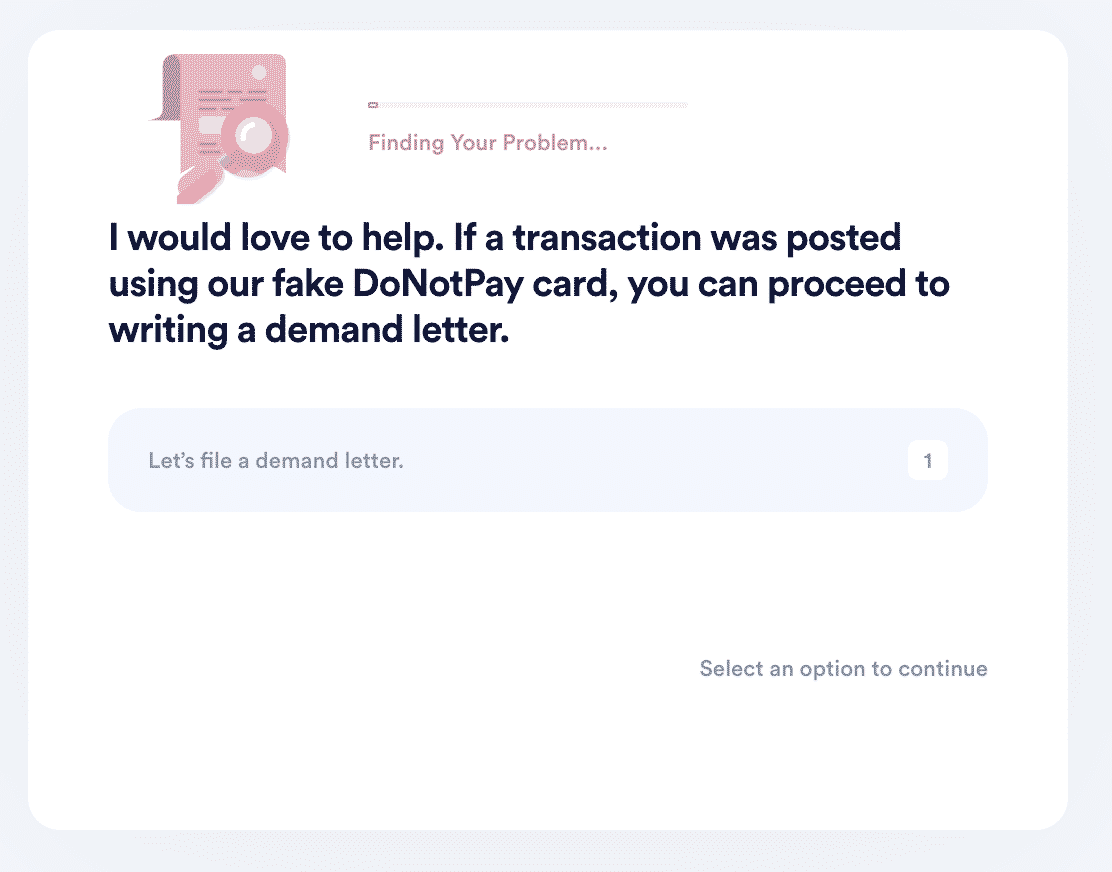
- Answer a few questions through our chatbot about the merchant and transaction.
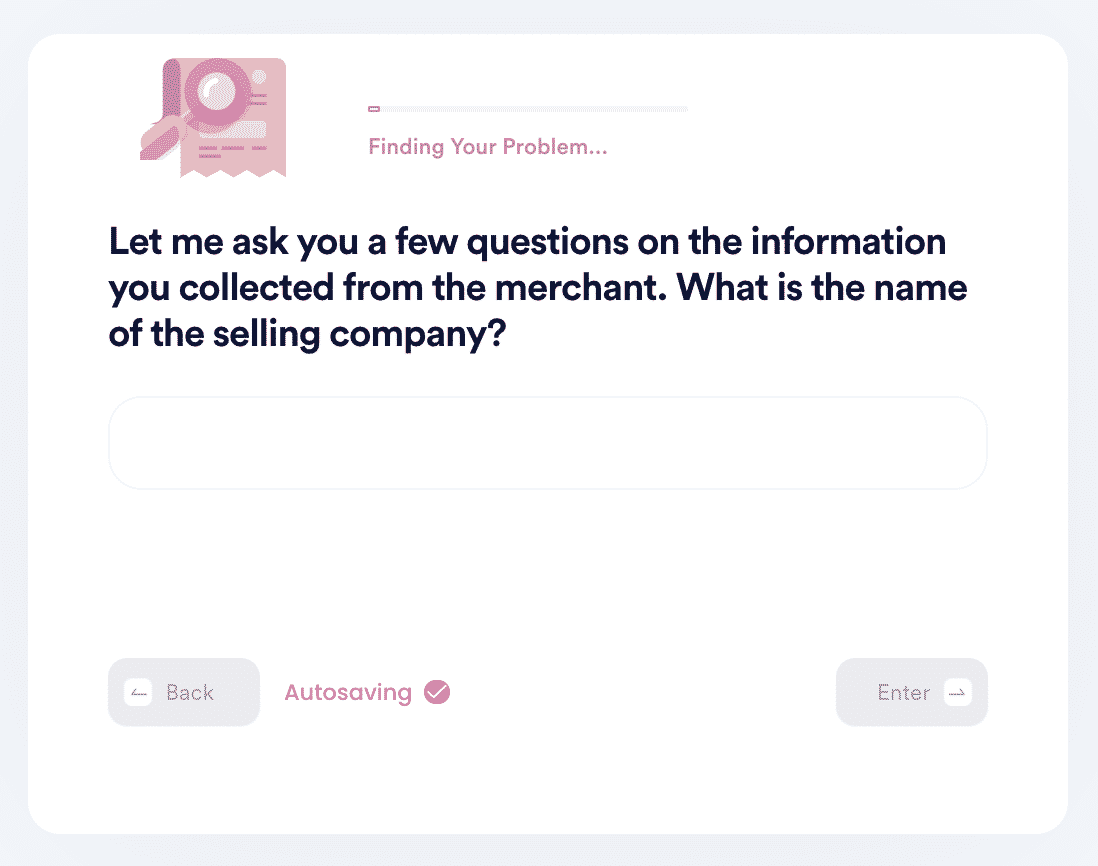
That’s it. DoNotPay will handle everything for you.
Why Use DoNotPay for Price Gouging?
Although you can address gas price gouging on your own, DoNotPay's ease of use is unbeatable. It is:
- Fast: Getting in contact with the right people and filing complaints is time-consuming. DoNotPay requires only a few moments. Then you can sit back and relax.
- Easy: All you have to do is give DoNotPay the information, and they will do all the work for you.
- Successful: DoNotPay makes sure the merchant will send you your monetary compensation.
Frequently Asked Questions
Price gouging laws are sometimes confusing. Here are some common questions to make them as simple as possible.
What States Have Price Gouging Laws?
35 of the 50 states have price gouging laws. The 15 that don't still might take action using other laws such as those banning unconscionable sales practices.
What is Amazon's Policy on Price Gouging?
Amazon maintains a zero-tolerance policy regarding price gouging. Their third-party stores are constantly monitored, so offenders are caught and removed quickly. Amazon also works closely with law enforcement to hold vendors accountable.
Does California Have Price Gouging Laws?
Yes. Price gouging is illegal during a State of Emergency in California.
DoNotPay Solves a Long List of Everyday Challenges
Price gouging is just one of the things DoNotPay can help you resolve. Their services cover a vast range of topics.
- Obtaining a birth, marriage, or death certificate
- Cancel timeshares
- Fight bank fees
- Negotiate your way out of jury duty
The list goes on. DoNotPay's mission is to save you money and give you back the time you need for the important things in life. Try it today.
 By
By